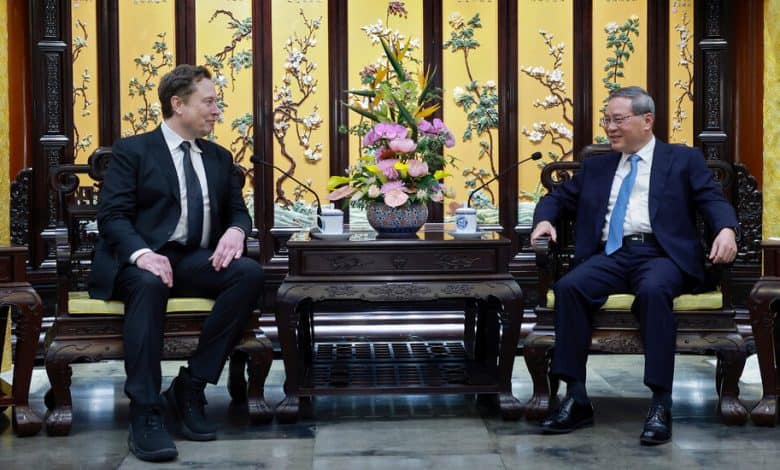Who Gains from Elon Musk’s Visit to China?


Elon Musk meeting with Premier Li Qiang, China’s second-highest official, on a weekend visit to Beijing that boosted Tesla stock.Credit…Wang Ye/Xinhua, via Associated Press
Why Elon Musk went to China
Just days after Secretary of State Antony Blinken traveled to Beijing and warned China about unfair trade practices, Elon Musk landed in the Chinese capital. The Tesla boss’s meeting with China’s No. 2 official may have paid off: Musk reportedly cleared two obstacles to introducing a fully autonomous driving system in the world’s biggest car market.
The split screen again reveals the gap between Western diplomacy and corporate imperatives. Tesla has to stay committed to China even as it faces big headwinds — a conundrum that other multinationals also face, and one that Beijing is eager to exploit.
Musk is betting big on self-driving, and China is key. Tesla last week reported its worst quarter in two years as a price war hurts profit. Tesla shares have plummeted (though they’ve rebounded in recent days, and are up more than 8 percent in premarket trading) amid plans for big layoffs.
Musk has tried to reassure the market by pushing ahead with a low-cost model. Fully autonomous driving is also crucial. Musk told analysts last week that if investors don’t believe Tesla would “solve” the technological challenge that is autonomous driving, “I think they should not be an investor in the company.”
The carmaker faces challenges in its second biggest market. Heavily subsidized Chinese rivals are eating into sales, led by the Warren Buffett-backed BYD, which is vying with Tesla for the crown of world’s biggest E.V. maker.
Teslas are banned from many Chinese government sites because of concern about what data the American company collects. President Biden’s move to declare Chinese E.V.s a security threat probably won’t have made it any easier for Tesla in China.
